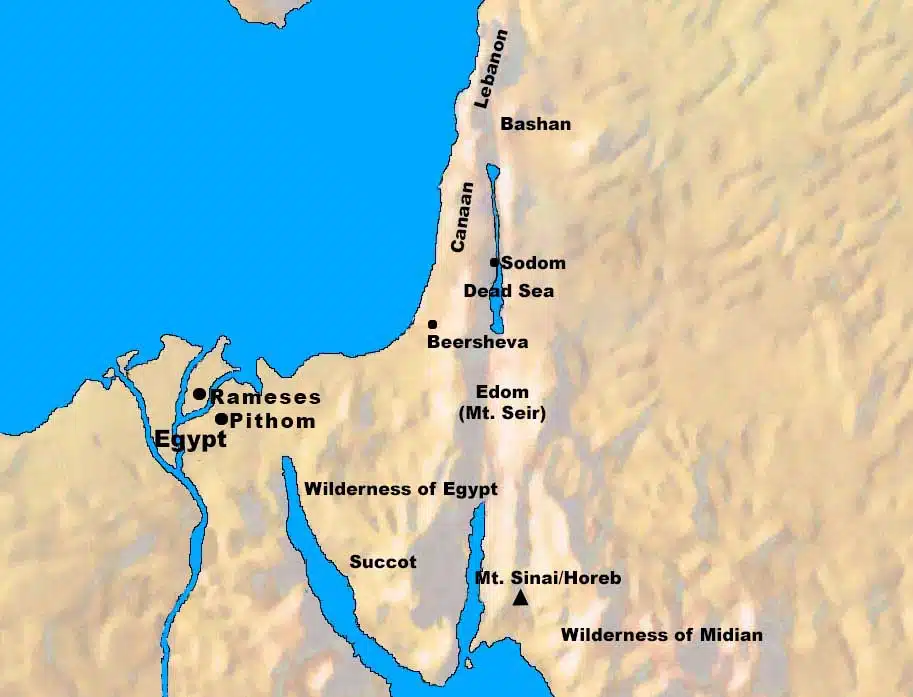The LORD describes how to make the incense, its use, and the demand for complete obedience.
The next thing that the Lord said to Moses concerned how to make the incense that was to be burned within the tabernacle. He told Moses to take for yourself spices, stacte and onycha and galbanum, spices with pure frankincense. The three spices, stacte and onycha and galbanum are difficult to identify. The word for stacte (Heb. “natap”) can mean “drop”, implying that it was a kind of resin that oozed from a tree or a plant. Onycha (Heb. “shekheleth,” used only here in the Old Testament) is thought by some to be an excretion from a sea creature such as a mollusk. Galbanum (Heb. “khelbenah,” also used only here in the Old Testament) is thought to be a type of resin from an uncertain source.
The incense was to be made with an equal part of each of these three spices. These three fragrant spices, mixed with pure frankincense, would create a very strong, possibly pungent, odor when burned. So, it was with these ingredients that they were to make incense. It was to be a perfume made by someone skilled at doing the work of a perfumer. The incense was also to be salted (the verb form occurs only here and two other places – Leviticus 2:13 and Ezekiel 16:4), pure, and holy.
To prepare the incense for use, Moses was instructed to beat some of it very fine, producing a fine powdery substance. Then, he was to put part of it before the testimony in the tent of meeting where I will meet with you. The fact that it was used at the meeting place with the LORD meant that it needed to be considered most holy.
Like the anointing oil in the previous section, the manufacture and use of the incense came with a warning. This incense which you shall make, meaning the formula, was not to be made in the same proportions for yourselves. The people presumably could make incense for themselves—they simply were prohibited from using this particular recipe. The reason for this is that the LORD proclaimed that this type of incense was to be considered holy…for the Lord. And as with the anointing oil, the LORD warned that Whoever shall make any like it, to use as perfume, shall be cut off from his people. To use this recipe as perfume (implying every-day use) would result in being cut off from his people, either by death or banishment from the community.
The use of incense and anointing oil tells us much about the nature of the holiness of the Suzerain (Ruler) God. The tent of meeting was to have a healthy, pleasant and unique aroma, one that clearly reflected Yahweh’s uniqueness and holiness. Such a quality demanded that the vassals (Israel) knew how to worship the Suzerain (Yahweh) to experience His holy presence. God set forth clear instructions so they could do so in safety, without dying. But God made it clear that there would be severe adverse consequences if they disobeyed God’s guidelines.
Biblical Text:
34 Then the Lord said to Moses, “Take for yourself spices, stacte and onycha and galbanum, spices with pure frankincense; there shall be an equal part of each. 35 With it you shall make incense, a perfume, the work of a perfumer, salted, pure, and holy. 36 You shall beat some of it very fine, and put part of it before the testimony in the tent of meeting where I will meet with you; it shall be most holy to you. 37 The incense which you shall make, you shall not make in the same proportions for yourselves; it shall be holy to you for the Lord. 38 Whoever shall make any like it, to use as perfume, shall be cut off from his people.”
Check out our other commentaries:
-
Exodus 39:27-29 meaning
The priests' turbans, caps, breeches, and sashes are made....... -
Hosea 4:15-19 meaning
In the midst of leveling additional accusations against Israel for playing the harlot by following pagan ways that violate their covenant with God, the LORD...... -
Luke 9:4-5 meaning
Jesus instructs His disciples how to respond when a town receives them favorably and how to respond when a town receives them unfavorably....... -
1 Thessalonians 4:1-8 meaning
Paul exhorts the Thessalonians to be sanctified, to live a life apart from sin and worldliness. Primarily this means living a sexually pure life. Sexual...... -
Hebrews 1:6-7 meaning
The Son is greater than the angels because the angels have been commanded to worship Him and they serve Him.......



